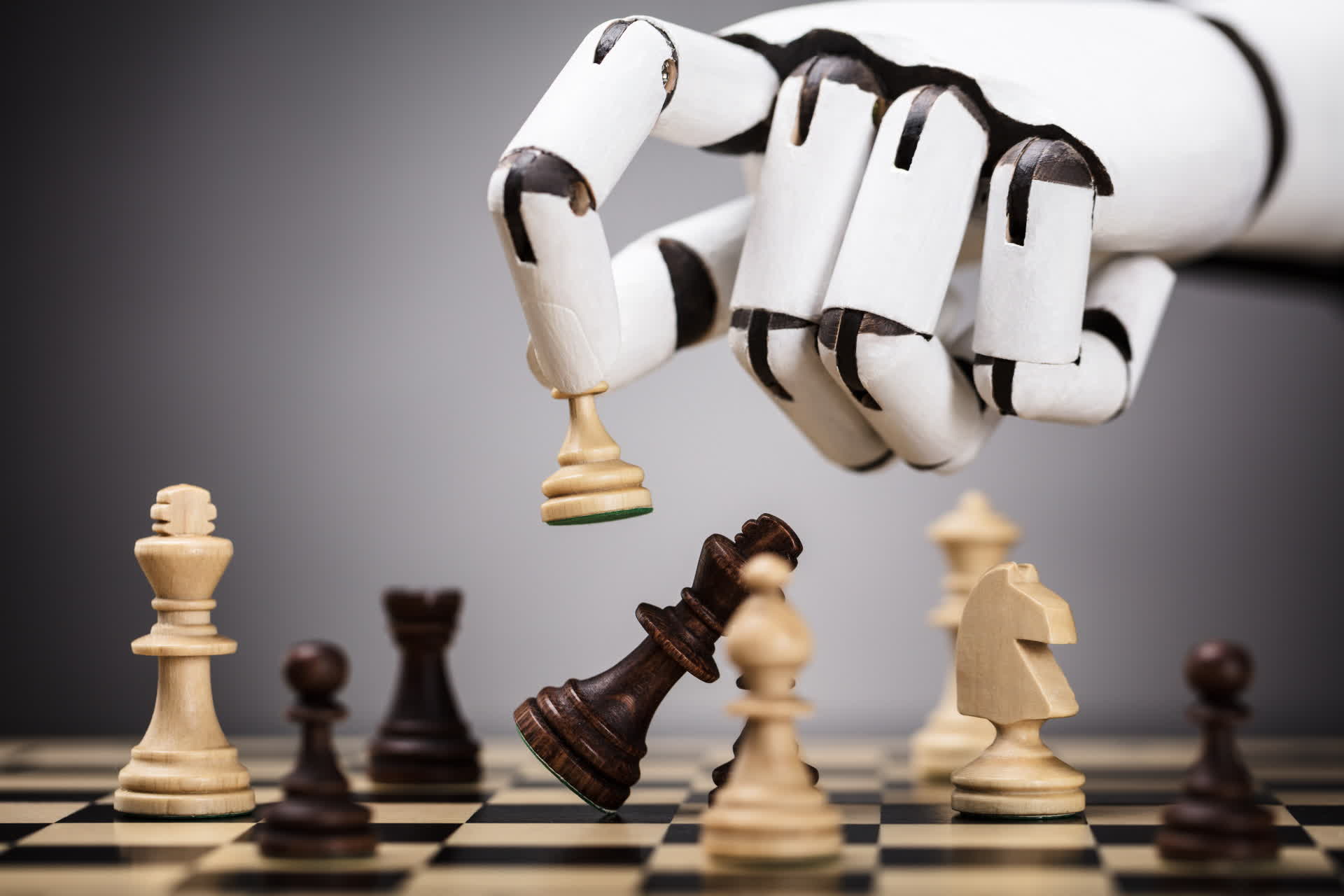Researchers are working on a chess-playing AI that emulates human-level skill
In brief: AI has been kicking our collective butt in just about every archetype lath game imaginable for many years now. That's no surprise, though -- when yous tell an AI to learn from the all-time with no checks or balances, that'due south precisely what information technology will do. Now, though, researchers are looking for a mode to handicap Chess-playing AI and teach a new model to make more human-similar decisions.
This is certainly a novel concept: once more, nigh chess and board game-playing AIs seek to beat the best of the all-time. Indeed, in some cases, AI players take been so good that they've driven some pros out of the gaming community entirely.
Maia, on the other hand, is a new chess engine that seeks to emulate, not surpass, human-level chess performance. As researchers point out, this could pb to a more than "enjoyable chess-playing feel" for whatsoever humans an AI is matched up against, while as well assuasive those players to learn and improve their skills.
"Current chess AIs don't accept any formulation of what mistakes people typically brand at a item ability level," Academy of Toronto researcher Ashton Anderson explains. "They will tell you all the mistakes you made – all the situations in which you lot failed to play with auto-like precision – simply they can't split up out what you should work on."
For a novice or medium-tier role player, it can be difficult to decide your pain points if you're getting crushed by your opponent. Even so, when the challenge is fair and the playing field is level, it'due south easier to discover those small spots where y'all could've done improve.

"Maia has algorithmically characterized which mistakes are typical of which levels, and therefore which mistakes people should work on and which mistakes they probably shouldn't, because they are however likewise difficult," Anderson continues.
And so far, Maia has been able to match human moves more than 50 per centum of the fourth dimension. That's not a great number even so, but it's a start.
Maia was introduced to lichess.org, a gratuitous online chess service, a few weeks agone. In its showtime week of availability, the model played a whopping forty,000 games, but that number has risen to 116,370 games now.
Breaking that figure downward, the bot has won 66,000 games, drawn 9,000, and lost 40,000. Earlier its lichess debut, the model was trained on nine sets of 500,000 "positions" in existent human chess games.
It's allegedly possible to play against the bot, though I cannot figure out how to practice so, since its profile doesn't appear to accept a "challenge" button of whatsoever kind. Withal, since "maia1" appears to be constantly playing at least 20 games at any given time, you can spectate whenever you similar.
Eye prototype credit: Andrey Popov
Source: https://www.techspot.com/news/88424-researchers-working-chess-playing-ai-emulates-human-level.html
Posted by: robinsondectat46.blogspot.com


0 Response to "Researchers are working on a chess-playing AI that emulates human-level skill"
Post a Comment